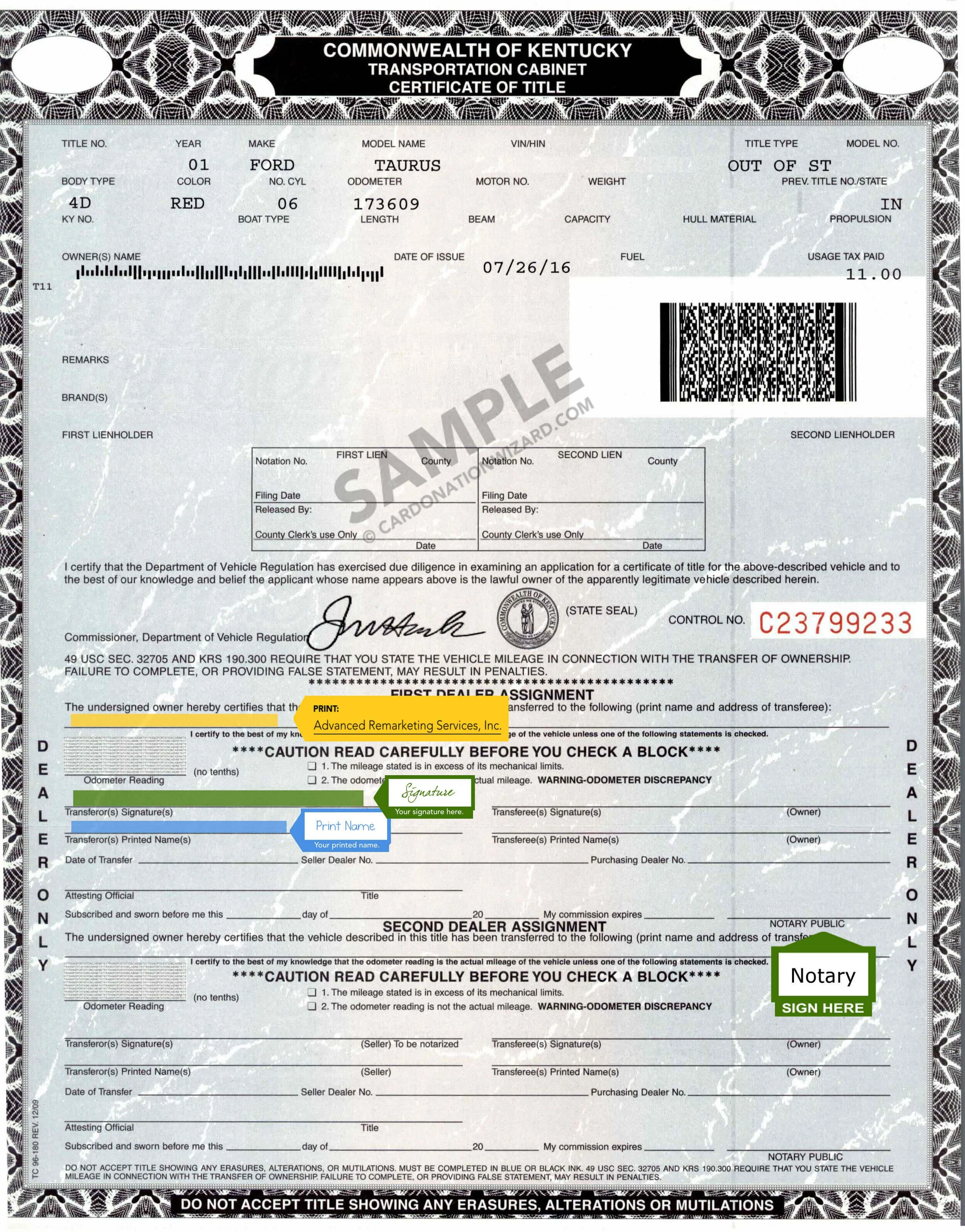After a car sale, many states require you to file a Release of Liability form. Some states even attach it to the bottom of the title! Even if this is not required where you live, it should be one of the many things you do to protect your butt when you sell a car. The trouble is that most people have no idea what a Release of Liability is in the context of selling a car and what the benefits are to filling out this paperwork.
It might seem crazy that you could be on the hook for what someone else does after you sell them your car, but trust me, it happens all the time.
Let’s find out how this works.
What is a Release of Liability Form?
The Waiver of Liability Agreement, otherwise known as a Release of Liability form, is a legally-binding document drawn up between two parties. There is a Releasor who promises not to sue and a Releasee who could otherwise potentially be liable for the actions of the Releasor.
Once this form is signed, the Releasor takes full responsibility for the risks and agrees not to sue the Releasee for future damages or injuries.
This process can be performed for many reasons, and one of the most popular is selling a car.
Why to File a Release of Liability After a Car Sale
When you sell a car yourself (instead of through a dealership), you remain at risk until that person transfers the title. If they end up in an accident while the car is still registered and titled to you, then you could be legally required to pay for those damages.
I realize that might sound ridiculous. Obviously if the person who bought your car gets a speeding ticket, for example, you had no hand in that. But trust me, this sort of thing happens all the time, especially with parking tickets and red light violations where the person thinks they can get away without paying them. I talk about a specific scenario involving a hit-and-run at the end of this article.
Protecting yourself starts with a bill of sale. Then, you need to contact your insurance company and cut all ties to the vehicle. The most critical step, however, is to contact your local DMV, the Secretary of State, County Clerk’s Office, Motor Vehicle Administration or Department of Revenue, whoever handles the car titling in your state, and send them a Release of Liability form. It’s vital that they receive the form as a notice of the sale.
When to File a Release of Liability
The key is not to delay. This should be one of the first things you do once that vehicle leaves your possession. Otherwise, you are in jeopardy. Most states have laws regarding the timeframe for submitting this form. If you live in a state that doesn’t require any release of liability forms, we still recommend contacting the DMV. It’s always better to go above and beyond what’s needed to protect yourself.
Thoroughly Release Your Liability Every Time
Just like canceling your car insurance, submitting a Release of Liability to the state should be a natural step every time you sell a car. Without it, you could be on the hook for the new owner’s parking tickets, citations, and even crimes.
Most states provide the paperwork for you and make the process quite simple. In fact, you might not even need to visit the office, so explore your state’s online resources first before making the trip.
In general, you will need the following information on your release of liability or notice of transfer forms:
Your name and contact information
Name and contact information of the buyer
License plate number if you left the plates on
Year, make, model and color of the car
VIN number
Date of sale
Odometer reading
Other Ways to Protect Yourself When Selling a Vehicle
Selling a car is a big task and there’s a lot to think about. What’s most important through it all is that you protect yourself. This starts with screening your buyers and weeding out any people you aren’t sure about.
Know the buyer’s plan
It’s wise that you ask if they have the financing planned before setting up the meeting. Don’t take a check for payment. Instead, you want to stick to cash, money order, or direct financing from the bank. If someone wants to purchase your car without seeing it, this is a big red flag.
Do your paperwork
To speed the process up a little, you can have all the paperwork ready ahead of time including a Release of Liability form. Just make sure you don’t turn over that title until you receive the payment. It’s also wise not to fill out the title in advance just in case the sale falls through.
Confirm your insurance
Prior to having anyone test drive your car, you want to make sure that your insurance covers them in that scenario. It’s also wise to get a copy of their driver’s license before you let them drive your car. You can snap a copy with your phone and send it to a friend so they know who you are with.
Stay safe out there
Your best bet is to take someone along with you for the entire event and meet your buyer in a busy public area. The grocery store parking lot is always a good idea. You should both accompany the buyer for the test drive along a route agreed upon at the start.
What’s the Worst That Could Happen?
Don’t think for a moment that these situations don’t happen every day. Just read about this guy who sold his car to a dealer and ended up in court months later when it was involved in an accident.
When you don’t have a written waiver for the sale of a car, you face chances of having to go to court and battle out a disagreement. This is a situation you don’t want to be in. Unfortunately, this is an everyday occurrence, but it’s something you can easily prevent. You just need to take the right steps. Here are just a few consequences filling out a Release of Liability form prevents.
Let’s say the buyer commits a hit-and-run on the way home from buying your car. They suddenly remember the car isn’t titled to them, so they flee the scene, park it in a field, and walk away. Rest assured: they will be caught. Still, in situations like this, you will experience:
Lost time
If the buyer won’t resolve things the easy way, or if they disappear, you are going to spend a lot of time resolving this. Between talking to a lawyer and dealing with the courts, plan on taking time off work and life while things get resolved. Not to mention, the cops will arrive at your door that night wondering where you were when the accident occurred.
Lost money
Medical bills and property damage could be brought against you surprisingly quickly even though you had nothing to do with the accident. You will have to pay for legal fees to resolve this, and you’ll have to cover your time off work either way.
Mental anguish
It would be nearly impossible to remain peaceful while going through a battle like this. Even if you think everything will work out in your favor, there are going to be tough times throughout the process.
Cover yourself
There is no reason you should face mental and legal trouble over someone else’s reckless behavior. Your best bet is to not neglect this vital step when selling your car. Filling out your state’s Release of Liability form only takes a small chunk of time and keeps you protected from whatever the new owner chooses to do with the car. Don’t risk your time, money or sanity by allowing a buyer to take advantage of you.
Dirt Legal offers VIN Checks and title replacement for cars, motorcycles, and almost anything with wheels. Click the links to learn more about our services.
We are not attorneys. This article is not legal advice. Cover image source
















If negotiations continue, rely on your facts: call attention to the VIN check, vehicle history report, or pre-purchase inspection to justify your asking price.